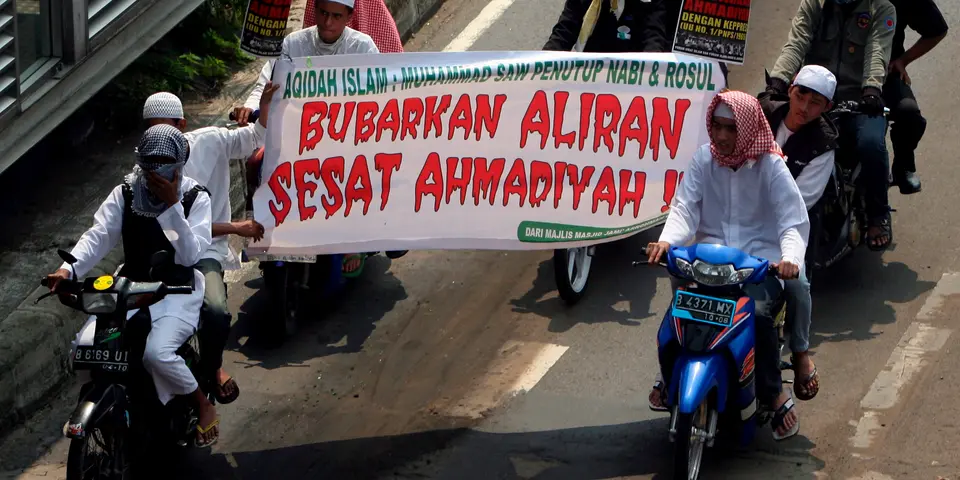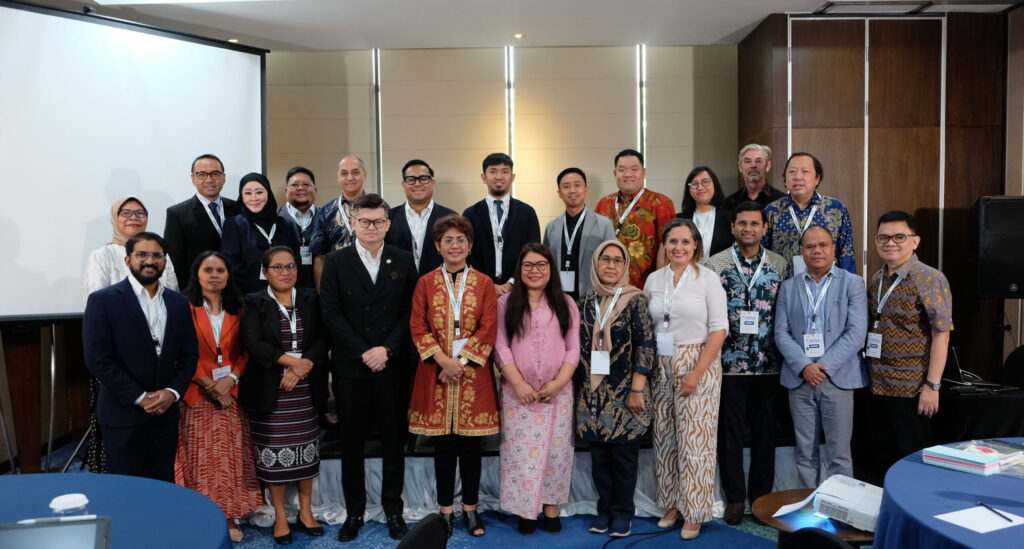
Defending Freedom of Religion: A Collective Responsibility
November 11, 2024

The International Panel of Parliamentarians for Freedom of Religion or Belief (IPPFoRB) and the ASEAN Parliamentarians for Human Rights (APHR) recently met in Jakarta in August 2024 to forge a pathway to defend religious freedom for all in the region. The remarkable event brought together current and former Southeast Asian parliamentarians focused on confronting some of the most challenging and sensitive human rights issues.
The gathering recognized the critical need to address threats to freedom of religion or belief (FoRB) in the region while simultaneously highlighting the importance of individual and collective liberties—including the right to believe as one’s conscience leads—as crucial to stability and peace.
The conference issued the Jakarta Declaration, which pledges to promote and safeguard FoRB throughout Southeast Asia. Notably, it called upon governments to fulfil their international human rights obligations and prioritize FoRB through concrete actions.

Members and former members of Parliaments from Southeast Asia gathered for the Parliamentarians Regional Conference in Southeast Asia 2024: Promoting and Protecting Freedom of Religion or Belief in Jakarta on 25 August 2024.
Specifically, these actions include repealing repressive and discriminatory laws that threaten FoRB; taking decisive action against the perpetrators of religious-based hate crimes, discrimination, and violence; condemning the misuse of religion for political purposes and politicization of faith; strengthening tolerance and social cohesion through capacity building, education, interfaith dialogue, cultural and religious literacy.
The Declaration emphasized the importance of protecting everyone’s right to hold and express their beliefs freely and peacefully, without fear of persecution or discrimination. Although Southeast Asian countries are rich in diversity, they face significant challenges in safeguarding and advancing the right to Freedom of Religion or Belief (FoRB). The host of the meeting, Indonesia, is no exception; despite its long tradition of religious pluralism, it struggles with these issues as well.
While Indonesia’s Constitution does guarantee freedom of religion and the right to worship according to personal beliefs, these freedoms are too often jeopardized. The U.S. Commission on International Religious Freedom reports that vandalism and the burning of an Ahmadiyya mosque in West Kalimantan resulted in the perpetrators being released after just 16 days. This incident highlights ongoing challenges concerning religious freedom. Cilegon, a city of nearly 450,000 people, remains significant as the largest city in Indonesia that lacks non-Muslim places of worship, underscoring issues faced by religious minorities.
Pope Francis’ recent visit to Indonesia underscored the significance of religious pluralism in a nation with one of the largest Muslim demographics globally. The trip focused on facilitating interfaith dialogue, advocating for social justice, and addressing environmental concerns. Throughout his visit, Pope Francis engaged with a spectrum of religious leaders, aiming to foster unity among diverse faith traditions and promote principles of mutual respect and intercultural understanding.
Challenges extend beyond Indonesia. In Myanmar, Rohingya Muslims face brutal persecution fueled by rising Buddhist nationalism. This situation illustrates the severe human rights abuses that can arise from weaponized religious identity. In Thailand, while there’s some tolerance, religious minorities in the southern provinces deal with violence linked to ethnic and political tensions.
The Constitution guarantees religious freedom, but security measures often compromise minority rights. In Malaysia, although Islam is the official religion and non-Muslim rights are acknowledged, societal pressures and laws typically favor Islam, leading to restrictions. A recent case prohibiting non-Muslims from using “Allah” underscores these ongoing struggles.
IPPFoRB and APHR can assist Indonesia and other countries in the region with significant challenges regarding Freedom of Religion or Belief (FoRB). IPPFoRB is a global network comprising over 300 parliamentarians from 90 countries across North and South America, Africa, Asia, Europe, and Oceania. Meanwhile, APHR consists of more than 155 members, including current and former parliamentarians, from eight countries in the region.
Southeast Asian parliamentarians play a vital role in promoting FoRB, especially as blasphemy laws continue to expand. Their unique position enables them to advance legislative measures that safeguard FoRB, advocate for the repeal of blasphemy laws, and promote the benefits of diverse communities by proposing inclusive policies.
In the Jakarta Declaration, the IPPFoRB and APHR parliamentarians commit to upholding freedom of religion or belief. They recognize their responsibilities in law-making, oversight, and representation to contribute to positive and sustainable peace in the region.
The adoption of this Declaration symbolizes a collective commitment among parliamentarians to promote and protect freedom of religion or belief (FoRB). This presents a significant opportunity for Indonesia and all of Southeast Asia.
Emily A. Cole is a Research Analyst with the Program on Global Faith and Inclusive Societies. Mercy C. Barends is the Chair of ASEAN Parliamentarians for Human Rights (APHR) and a member of the House of Representatives of Indonesia.
*This Op-Ed first appeared in the Jakarta Post on 11 November 2024.
ASEAN Parliamentarians for Human Rights (APHR) was founded in June 2013 with the objective of promoting democracy and human rights across Southeast Asia. Our founding members include many of the region's most progressive Members of Parliament (MPs), with a proven track record of human rights advocacy work.